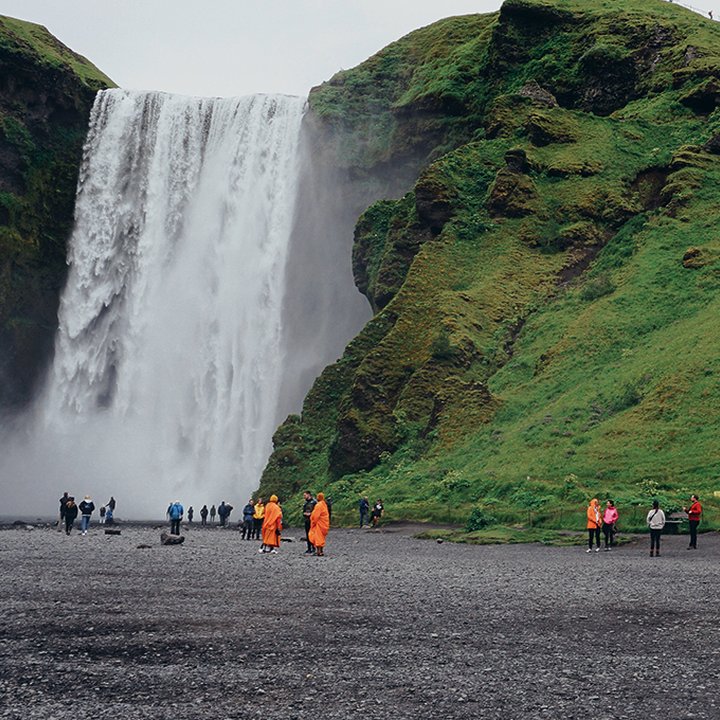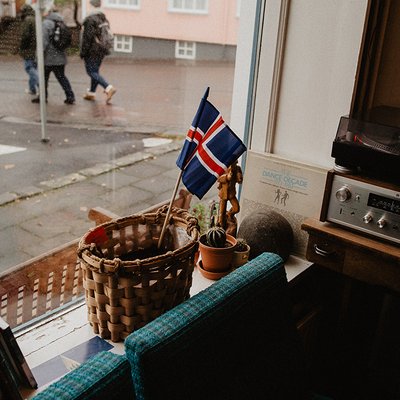Learn English: Online Games vs. In-Person Classes
Learning English is an essential skill that can open doors to new opportunities in life. However, with so many options available, it can be challenging to decide what’s the best way to learn English.
May 12, 2023

Iceland, also known as the "Land of Fire and Ice", is a small island nation located in the North Atlantic Ocean. Despite its small size, Iceland is a unique country with a rich history, culture, and language.
In this article, we will explore Iceland's language landscape, including whether it is possible to live in Iceland only speaking English, how common English is spoken in Iceland, whether Icelandic is hard to learn, and what other languages are spoken in Iceland.
One notable aspect of Icelandic society is the country's high level of English proficiency, with the majority of the population speaking the language fluently. According to a European Commission study conducted in 2012, Iceland had the highest percentage of people in the European Union who reported speaking English as a second language, with 94% of Icelanders speaking it fluently. This high level of English proficiency can be attributed to the country's emphasis on English language education and the widespread use of English in the global economy.

"Icelanders are some of the most well-educated people in the world, with a literacy rate of 99% and a high level of tertiary education.
In 2019, Iceland had the highest percentage of adults aged 25-64 with a tertiary education in the OECD, at 49%."
1. English Language Education: English is taught as a second language in Icelandic schools from a young age, and students receive extensive English language education throughout their schooling. This has resulted in a highly educated population with a high level of English proficiency.
2. Tourism: Iceland is a popular tourist destination, with many visitors coming from English-speaking countries. To accommodate these tourists, many Icelanders have learned to speak English to provide better customer service and to facilitate communication.
3. Global Economy: English is the dominant language in the global economy, and many Icelandic businesses operate internationally. Speaking English fluently is essential for Icelandic businesspeople to communicate effectively with partners and clients from around the world.
4. Pop Culture: English language media such as movies, music, and television shows are widely consumed in Iceland. This exposure to English-language pop culture has helped many Icelanders develop strong English language skills.
5. Migration: Iceland has experienced an influx of immigrants in recent years, many of whom come from English-speaking countries. This has resulted in a diverse population with many English speakers, and has further reinforced the importance of English language skills in Icelandic society.

"Iceland has a small population of just over 360,000 people, with about two-thirds of the population living in the capital city of Reykjavik.
Despite its small size, Iceland has a high standard of living, GDP in Iceland is expected to reach 26.32 USD Billion by the end of 2023,
according to Trading Economics global macro models and analysts expectations."
Yes, it is possible to live in Iceland only speaking English. Iceland is a highly globalized country, and English is widely spoken, especially in Reykjavik, the capital city. The high level of English proficiency among the population also makes it easier to navigate daily life in Iceland. However, while speaking Icelandic is not necessary for daily life, it may be more challenging in rural areas or when dealing with older generations who may not be as fluent in English

"Iceland has a unique tradition of naming conventions, with strict rules governing how children can be named.
Icelanders must choose their child's name from a list of approved names maintained by the Icelandic Naming Committee.
Surnames are not commonly used in Iceland, with individuals taking their father's first name as their surname,
followed by "son" or "dóttir" (daughter) depending on their gender."
In addition to Icelandic and English, some Icelanders also speak other languages, such as Danish, German, and Spanish. Danish is taught in schools and has a historical connection to Iceland, as the country was a part of the Danish realm until 1944. German and Spanish are also popular second languages among Icelanders, with many learning them for travel or business purposes.
Despite the prevalence of other languages in Iceland, the Icelandic government places a high emphasis on preserving the Icelandic language and promoting its use. This includes efforts such as creating new Icelandic words for modern technology and discouraging the use of loan words from other languages.

"Iceland has a strong literary tradition, with a high rate of book publishing and a love of reading.
The country has more books published per capita than any other country in the world,
and the annual Reykjavik International Literary Festival attracts writers and readers from around the world."
Iceland is a unique country with a rich linguistic landscape. While it is possible to live in Iceland only speaking English, learning Icelandic can be a rewarding experience and help to better understand the country's culture and history. With the prevalence of English and other languages in Iceland, it is possible to communicate and navigate daily life without speaking Icelandic, but efforts to learn the language may be appreciated by locals and help to create a deeper connection with the country.